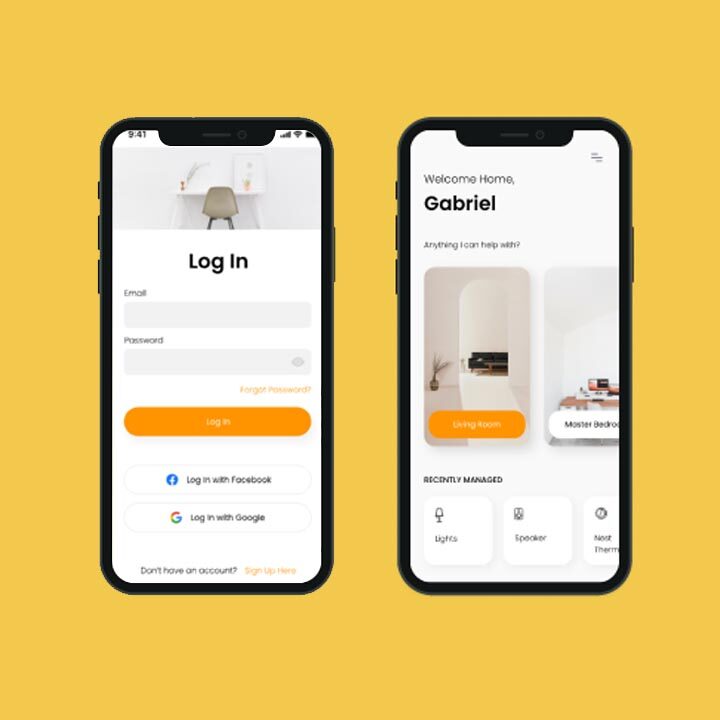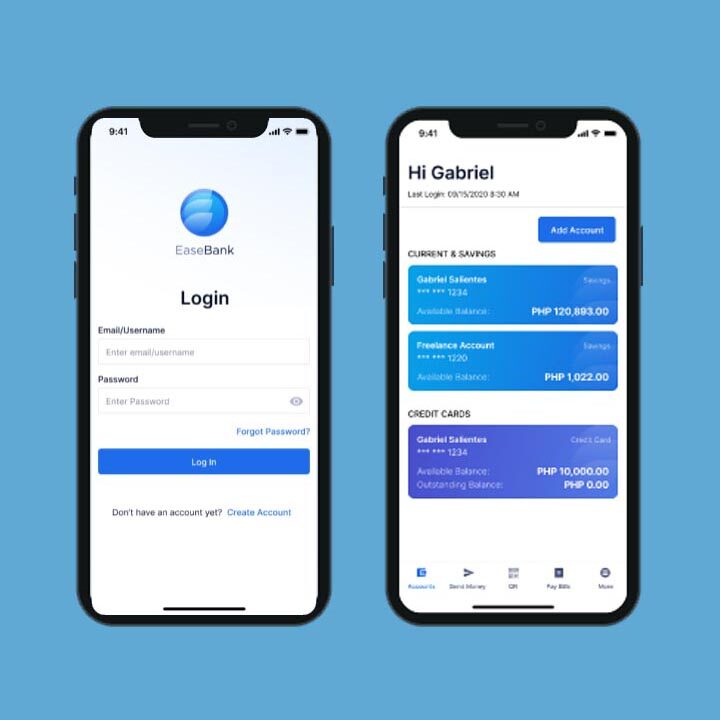What is a Mobile App Developer?
Table of Contents
Mobile App Developer
A mobile app developer creates software for mobile devices, such as smartphones and tablets. They typically work in teams with other developers, designers, and testers to create an app that is functional, user-friendly, and appealing to users. On a day-to-day basis, they may be involved in writing code, researching new technologies, and testing prototypes.
What do mobile developers do on a day-to-day basis?
They are responsible for developing and designing mobile apps, so their job is to come up with creative ideas and make sure the app functions correctly. They also have to keep up with the latest trends to create apps that users will love.
A typical day for a mobile developer might involve:
- Meeting with clients or team members to discuss app concepts
- Researching new technologies for apps
- Writing code to create the app’s functionality
- Testing the app if it works properly
- Fixing any bugs that are found
- Publishing the app to app stores
- Promoting the app to potential users
What skills are used in this profession?
Mobile developers must have strong technical skills, as they will be working with complicated code. They also need to be creative and have good problem-solving skills, as they often have to come up with solutions to complex issues. In addition, mobile developers need to work well in a team, as they will constantly be working with other developers, designers, and marketers.


The skills required for this profession vary, and as technology advances, so does the world of mobile development, making it an exciting and ever-changing field to be a part of.
1. Coding- As a mobile developer, you will need to be proficient in coding languages such as Java and Objective C. You will use these languages to create the code that makes apps function.
2. Programming- In addition to coding, you will also need to be able to program. This means you will need to be able to understand how algorithms work and can design apps that are effective and efficient.
3. Testing and debugging- Mobile developers must be able to test their code and debug any issues that may arise. It ensures that the apps they create are of the highest quality and free of errors.
4. UX/UI design- A large part of mobile development is creating apps that are not only functional but also have an excellent user interface. As a mobile developer, you will need to be able to design apps that are easy to use and visually appealing.
5. Database management- To create effective apps, mobile developers need to be able to manage databases. This includes being able to store and retrieve data as well as update databases when necessary.
6. Cloud computing- As more and more businesses move to the cloud, it is becoming increasingly important for mobile developers to be familiar with cloud computing. This allows them to create apps utilizing the cloud’s scalability and flexibility.
7. Security- With the ever-growing concern for cyber security, mobile developers must have a good understanding of security measures. This way, they can create apps that are secure and protect sensitive data.
8. Project management- Mobile developers often work on multiple projects simultaneously. As such, they must manage their time and resources effectively.
9. Documentation- To keep track of their work, mobile developers need to be able to create clear and concise documentation. This includes writing code comments and README files.
10. Version control- When working on large projects, mobile developers need to be able to use version control. This allows them to track changes and revert to previous versions if necessary.
11. Collaboration- Mobile development is often a collaborative effort. As such, mobile developers must be able to work well with others. This includes being able to communicate effectively and being able to work in a team.
12. Source control- To keep track of their work and share it with others, mobile developers need to be familiar with source control. This allows them to store their code in a central repository and share it with other developers.
13. Build tools- Mobile developers need to use build tools to automate the process of building apps. This includes being able to use tools such as Apache Ant and Gradle.
14. Continuous integration- To streamline the development process, mobile developers must be familiar with continuous integration. This allows them to build and test their code whenever changes are made automatically.
15. Deployment- Once an app is ready to be released, mobile developers need to be able to deploy it. This includes being able to package the app and submit it to app stores.
As you can see, many things go into making a successful mobile developer. You must be proficient in various coding languages and programming techniques to succeed. You also need to be able to design apps that are visually appealing and easy to use. Additionally, you need to understand how security works and be able to deploy apps safely.
The different types of mobile app developers
There are all sorts of Mobile App Developers, each with their unique skills and talents. Some are independent coders who work for themselves, while others are part of large teams within app development companies. Some specialize in developing games, while others focus on creating utility apps or mobile versions of websites. Some develop apps for specific operating systems, such as iOS or Android. No matter their specialty, they share one common goal: to create functional and engaging apps.
They can generally be divided into two main categories:
- Those who develop native apps- Native mobile apps are designed specifically for one operating system and can take advantage of all the features and functionality that the OS has to offer and
- Those who develop hybrid apps– Hybrid mobile apps, on the other hand, are created using web technologies and can be used across multiple platforms. Both native and hybrid mobile app developers need to have a strong understanding of the unique needs and capabilities of their targeting devices.
Whether they specialize in developing games, utility apps, or mobile versions of websites, they share one common goal: to create both functional and engaging apps.
How to become a mobile app developer?


Many people have dreamed of becoming mobile app developers but have no idea where to start. If you’re one of those people, this is the guide for you. Becoming one is not as difficult as you might think. It’s always possible to achieve your dreams if you do the work necessary.
The first thing is that familiarize yourself with the mobile app development process. It might include learning how to use mobile development frameworks and tools and understanding the different stages of app development. With this understanding and knowledge, you will be able to start learning how to code and create your programs.
Many resources are available online and in libraries to help you understand the necessary programming languages. Once you’ve mastered coding, you can start working on your first mobile app. By getting hands-on experience and practicing new skills, don’t be afraid to experiment and make mistakes. With time and practice, you’ll become a skilled one.
Challenges and opportunities for this career


From constantly learning new programming languages to dealing with ever-changing technology, these challenges will give you a better preview of what you’re getting into if you decide to pursue this career!
1. Learning new programming languages- As a mobile developer, you’ll need to learn new programming languages as they come out constantly. You’ll also need to keep up with the latest trends and technologies to create the best possible apps for your customers or clients.
2. Dealing with ever-changing technology- The mobile development landscape is constantly changing, so you’ll need to deal with new technologies as they emerge. It can be challenging, but it’s also one of the most exciting aspects of this career!
3. Keeping up with customer demands- Mobile users are notoriously demanding and expect nothing but the best from the apps they use. As a mobile developer, it’ll be your job to ensure that your apps meet or exceed customer expectations.
4. Meeting deadlines– In the world of mobile development, deadlines are often tight, and there’s no room for error. It can be tricky, but it’s also an essential part of the job.
5. Budget constraints- Unlike other types of development, mobile development is often constrained by budget limitations. You’ll need to be creative in your app development approach to stay within budget while still delivering a high-quality product.
6. Dealing with device fragmentation- One of the biggest challenges of mobile development is dealing with the fragmentation of devices. Thousands of devices have different screen sizes, resolutions, and capabilities. This can make it tough to develop an app that will work perfectly on all devices, but it’s something that you’ll need to account for if you want your app to be successful.
7. Developing for multiple platforms- To reach the broadest possible audience, you’ll need to develop your app for various platforms. This includes developing for iOS and Android and any other medium your target market may be using.
8. Keeping up with the competition- The mobile development market is incredibly competitive, and new apps are constantly being released that could potentially steal market share from your app. As a mobile developer, you’ll need to stay on top of the latest trends and developments to ensure your app stays on top of the competition.
9. Promoting your app- Once you’ve developed a great app, you’ll need to promote it to get people to download and use it. It can be challenging, but there are several ways to market your app effectively.
10. Dealing with rejection- Not every app will be a hit, and you’ll need to be prepared for possible rejection. It means you’ll need to have thick skin and be prepared to face some disappointment.
Mobile development can be a challenging but rewarding career. As a mobile developer, you’ll need to constantly learn new programming languages and technologies, meet deadlines, deal with budget constraints, and face the possibility of rejection. But if you’re up for the challenge, this may be the perfect career!
Common myths about being a mobile developer
There are many myths floating around about mobile development- some of which are perpetuated by those within the industry. Let’s explore ten common myths about mobile development and explain why they are nothing but myths.
- “Mobile development is easy.”
While it’s true that development for mobile devices has become much easier in recent years, it’s still not a simple process. When developing for mobile, there are various things to consider, such as screen size, resolution, and platform-specific features.
- “Anybody can be a mobile developer.”
Again, this is simply not true. While it’s true that anybody can learn to code, it takes a lot more than just coding skills to be a successful mobile developer. Understanding user experience (UX) and how to design for small screens is essential.
- “You don’t need to know how to code to be a mobile developer.”
While it’s possible to develop simple apps without coding knowledge, most successful mobile developers know how to code. In addition, coding skills are essential for more complex app development, such as building custom features or integrations.
- “Java is the only language you need to know for mobile development.”
Java is the most common language for Android development, but it’s not the only language you can use. Several other languages can be used for developing mobile apps, such as Swift (for iOS development) and C++ (for cross-platform development).
- “You need to be an expert in all platforms to be a successful mobile developer.”
It’s certainly helpful to be familiar with multiple mobile platforms, but it’s not necessary to be an expert in them. In most cases, it’s more important to focus on one or two platforms and become an expert.
- “You need a computer science degree to be a mobile developer.”
While a computer science degree can certainly be helpful, it’s not required to be a successful mobile developer. Several self-taught developers have been highly successful in the industry.
- “The only way to be a successful mobile developer is to work for a big company.”
Many successful mobile developers work independently or for smaller companies. Unfortunately, working for a big company can often be more of a hindrance than a help when developing innovative and successful mobile apps.
- “You must be based in Silicon Valley to be a successful mobile developer.”
Silicon Valley may be the epicenter of the tech industry, but it’s not necessary to live there to be a successful mobile developer. Several successful developers are based in other parts of the world, such as Europe and Asia.
- “You need to have raised millions of dollars in funding to be a successful mobile developer.”
While raising capital can undoubtedly help, being a successful mobile developer is unnecessary. Several self-funded developers have been highly successful in the industry.
- “Mobile development is a dying industry.”
This is perhaps the ridiculous myth on this list. Mobile development is one of the fastest-growing industries in the world. As a result, there is a growing demand for mobile apps, and the number of jobs in the field is expected to grow in the coming years.
Mobile development is a complex process that requires skills in coding, user experience design, and platform-specific knowledge.
Hopefully, this information helped clear up some confusion about what it takes to be a successful mobile developer.
The types of companies that employ mobile app developers
Mobile app developers are in high demand as more and more companies look to develop mobile apps. There are a variety of different types of companies that employ them, including but not limited to:
- Startups: Startups are often looking for developers to help them create new and innovative apps. At startups, they typically have a lot of freedom to experiment and try new things.
- Large corporations: Large corporations often have entire teams of developers working on various projects. They typically have more structure and less freedom to experiment.
- Government agencies: Government agencies often need mobile apps for various purposes, such as communicating with the public or providing information to employees. They are typically needed to be able to meet strict security requirements.
- Non-profits: Non-profits may need mobile apps to help raise awareness for their cause or raise funds. They are needed to be able to work with a limited budget.
The benefits of becoming a mobile app developer
Becoming a mobile app developer can be a great way to leverage your existing skills and knowledge to create new opportunities for yourself. As a developer, you’ll be able to use your creativity and technical expertise to design and build mobile apps that people can use on their smartphones and other mobile devices. In addition to the satisfaction of seeing your work used by others, several other benefits can come with becoming one. For example, you’ll be able to set your hours and work from anywhere. You’ll also have the potential to earn a good income, especially if you develop popular apps downloaded by many people.
It’s time to make your app dreams a reality. Become a Mobile App Developer and forge your path!
RELATED POSTS:
Web Developer: What you need to know
Why is Mobile App Development Important?
Web app development vs. Web development
Best Mobile App Development Trends To Watch Out For Android and iOS
The Top 5 Programming Languages For Android App Development
Hire App Developers For The Best Mobile Application Development
Get the expertise of DigiGlobal Solutions team and make your way into becoming a better business!







